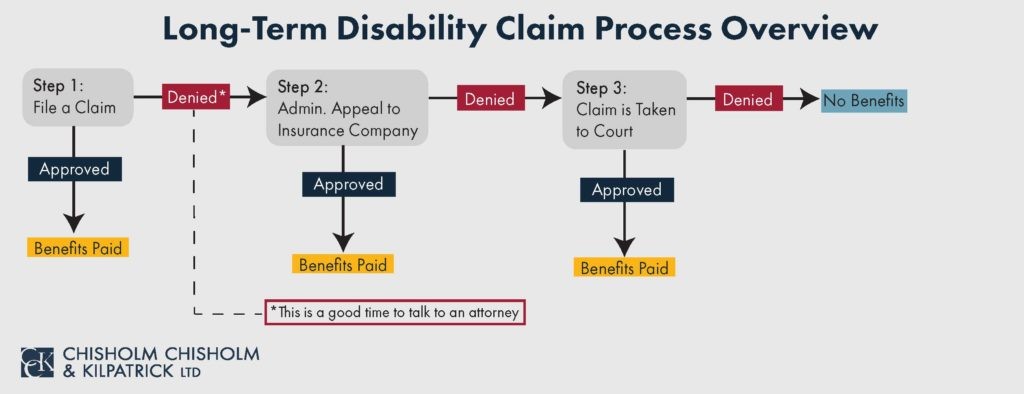Getting Long-Term Disability (LTD) for Huntington’s Disease

Huntington’s Disease is a degenerative and inherited disease of the brain. Over time, the nerve cells in a person’s brain deteriorate and leads to physical movement issues, diminished cognitive skills, mental health conditions, and, ultimately, death. While rare, this disease can render a person unable to work and may necessitate the need for long-term disability (LTD) benefits.
This article will explore Huntington’s Disease’s effect on individuals, how it may qualify for long-term disability benefits, and more.
How Does Huntington’s Disease Impact Your Ability to Work?
Huntington’s disease can severely impact a person’s ability to perform the duties of their job reliably and consistently. It may also completely prohibit them from working.
In the early stages of the disease, an individual may be able to continue working, albeit in a somewhat limited capacity.

For example, taking medication to control involuntary movements may help a person suffering from Huntington’s Disease to function more normally at work, but it could also worsen their depression. In this case, they would likely also have to take some form of antidepressant to combat the side effects of the first medication.
However, common side effects of depression medication include nausea, drowsiness, and low blood pressure, all of which could impact their ability to remain productive or complete an 8-hour workday. Additionally, the stress of coping with this degenerative disease could prevent them from concentrating on their job.
As the disease progresses and motor and mental functions deteriorate more rapidly, it is unlikely that a person will be able to continue working. As their symptoms worsen, they may require more intensive treatment plans, more frequent doctor’s appointments, and even constant aid and care.
Filing for Long-Term Disability Benefits for Huntington’s Disease
A person suffering from Huntington’s Disease will gradually develop symptoms similar to ALS, Parkinson’s Disease, and Alzheimer’s Disease. They may begin developing psychiatric conditions, and have trouble walking and speaking. As such, LTD benefits may be necessary.
To qualify for long-term disability benefits, a person must prove that they cannot perform the duties of their job as defined by their policy. Every policy contains a definition of disability. This will either be an own occupation or an any occupation definition.
Unfortunately, insurance companies frequently deny LTD claims, so it is often beneficial to contact a long-term disability lawyer well-versed in ERISA to help get these all-important benefits.
Our team of knowledgeable attorneys and professionals is adept at dealing with frustrating insurance companies, and we have years of experience navigating the long-term disability claims process. We work to submit strong medical and vocational evidence to the insurance company and, specifically at the appeal level, build the strongest case possible before heading to court. In the case of an appeal, we will request and review the insurance company’s claim file, the plan governing documents, and the denial letter to develop an appeal strategy that demonstrates your inability to return to work. As part of our strategy, we will gather supportive evidence such as your medical records, reports from your treating doctors, outside expert opinions, and witness statements from you and your family, friends, or coworkers. We are dedicated to helping you fight for the long-term disability benefits to which you are entitled. Contact us at (800) 544-9144 for a free case evaluation of your claim to see if we may be able to assist you.Let Chisholm Chisholm & Kilpatrick Assist with Your Long-Term Disability Claim


Share this Post